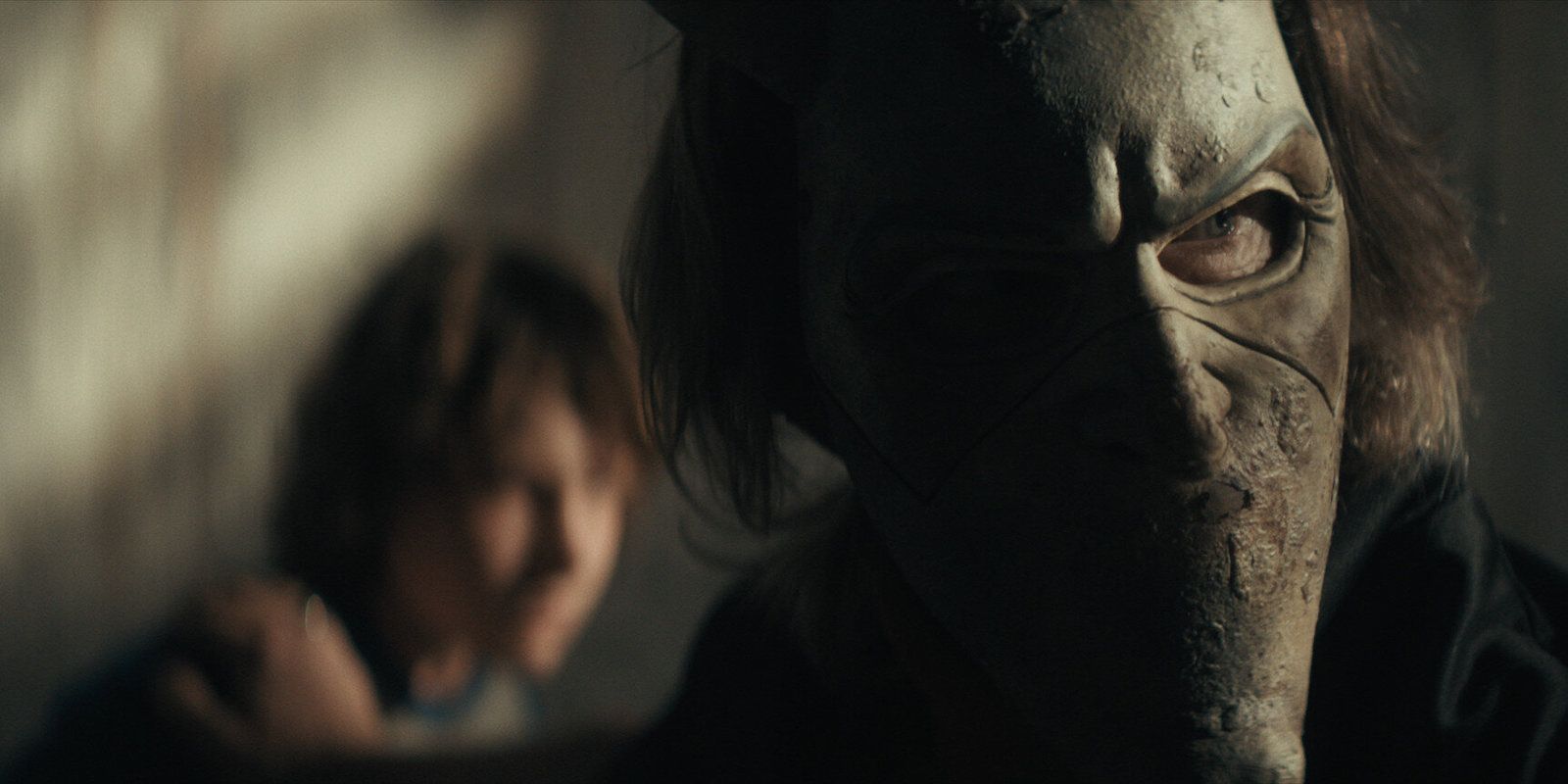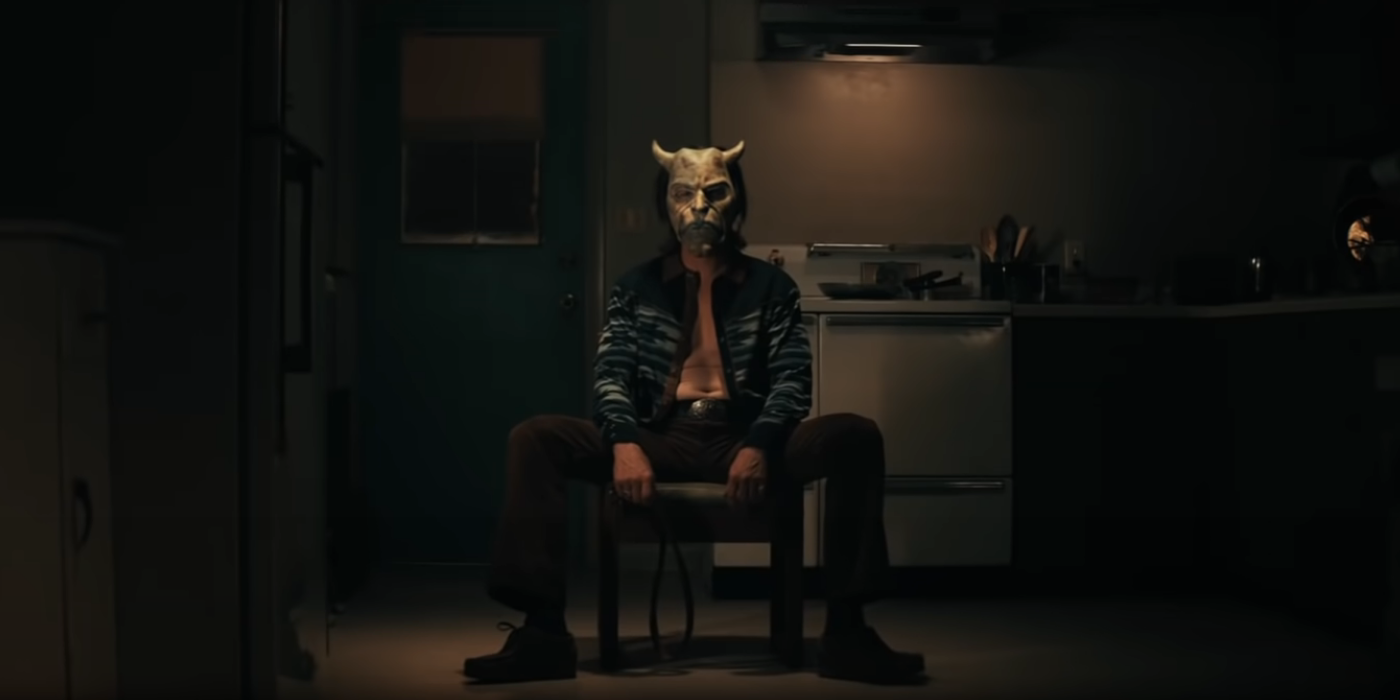The Black Phone is out and its generally positive reviews show that critics and audiences agree: it's good. One of the most anticipated horror movies of 2022, The Black Phone originally premiered at Fantastic Fest in September of 2021. Directed by Scott Derrickson and written by C. Robert Cargill and Derrickson, the film has quickly established itself as one of the highest-rated horror films released in 2022.
As of the writing of this article, The Black Phone boasts a critic's score of 86% on Rotten Tomatoes. Of 128 critic reviews on the site, 110 of them certify it Fresh, with only 18 calling it Rotten. Even with 2022 being a year heavy with horror movies, The Black Phone has distinguished itself, with its current scores placing it in the top 10 best-reviewed horror movies this year.
Derrickson and Cargill formerly teamed up to write 2012's Sinister. While it was a commercial success, Sinister didn't reach The Black Phone's level of critical acclaim, with its Rotten Tomatoes score sitting at 63%, over 20% lower than The Black Phone. Here's a roundup of the positive things critics are saying about The Black Phone.
CBR:
The Black Phone is another impressive addition to Derrickson and Cargill's acclaimed cinematic partnership, balancing messy family drama with paranormal thriller sensibilities. Both a largely faithful adaptation and expansion of Hill's story, the movie promises future strong work from its young cast and gives Hawke an opportunity to showcase how well he can embrace malevolence incarnate.
"The Black Phone" is a saga of support and resilience disguised as a semi-paranormal serial murderer flick. Underpinned by emotional performances across the board and a commanding atmosphere, "The Black Phone" aces its foundational qualities and allows its nuances to take control. The gore is secondary to the story, with character development taking first string, but by no means does the film neglect to thrill. Rather, it’s your care for Finney and the intensity of the film’s skillfully crafted suspense that draws your knees to your chest and your nails to your teeth.
IGN:
The scares here are never cheap. You’ll jump, to be sure, but every ounce of distress is well earned. The supernatural element supports the terror, but it’s the reality of Finney’s situation and Hawke’s unnerving Grabber that keep the tension throughout the story.
“The Black Phone” ultimately works better than most other recent King-like or King-style horror pastiche. And while Derrickson and Cargill might’ve delivered a more essential variation on their movie’s familiar tropes if they spent more time rooting around the darker corners of Hill’s troubling story, they ultimately play to their creative strengths, with some help from their key collaborators.
Most positive reviewers reference the chilling performance of Ethan Hawke as The Grabber and Mason Thames' balanced and believable protagonist, Finney. The character work in the film is indeed top-notch and the dialogue works to highlight that. Not every review is entirely glowing, with some referencing a feeling that the film never quite found its cohesion. Here are some reviews from that other camp:
Black Phone is the rare scary movie that could have benefited from additional runtime and exploration of its numerous ideas, especially the film's supernatural components. Instead, despite quality parts (especially performances from Hawke, Thames, and McGraw as well as the movie's eerie 1978 setting and atmosphere), Derrickson struggles to build upon Hill's short story in enough significant ways to make the movie version any richer or more terrifying than its 30-page source material. The result is a beautifully shot and well-acted live-action short story, but one that's missing enough connective tissue, fresh ideas, and time spent between its characters to produce a lasting feature film experience.
Answer the call of The Black Phone if you dare. Just be aware that, much like the severed cord dangling underneath the device, there’s a crucial disconnect between the provocative ideas that it sets up, and what it ultimately delivers.
Leaning heavily into the familiar narrative obsessions of Hill’s father, Stephen King — plucky kids, feckless parents, creepy clowns and their accessories — “The Black Phone” feels unavoidably derivative. But the young actors are appealing, the setting is fondly imagined and the anxieties of adolescence are front and center. For most of us, those worries were more than enough to conjure the shivers.
However, even its detractors tend to laud elements of The Black Phone. Most reviewers point to the impressive performances by the cast as being more than enough to captivate the film's audience, even if they don't love every choice the film makes. The Black Phone's ending is also remarkable and fresh, not relying solely on classic horror tropes to tell its story. With scores higher than Derrickson's previous horror outings and a stellar ensemble and villain, The Black Phone proves that a film doesn't need to be perfect to be enjoyable.


